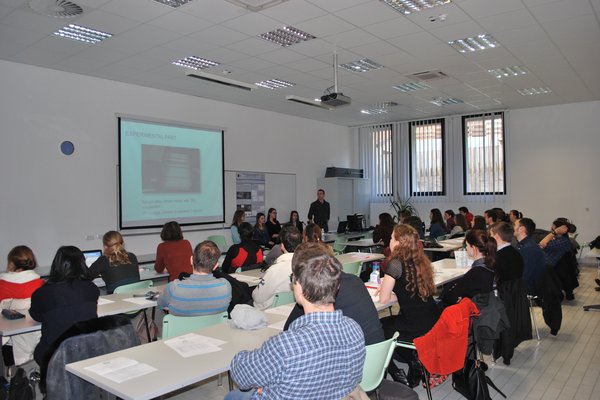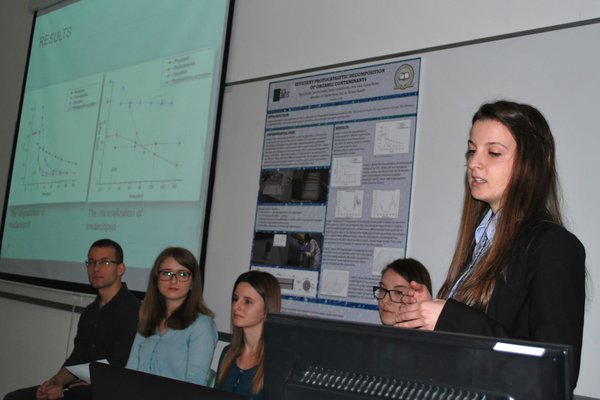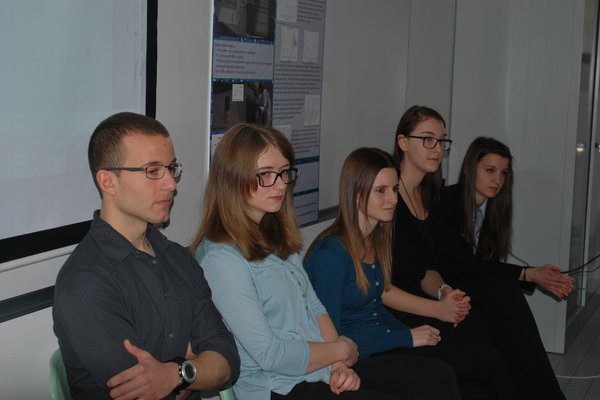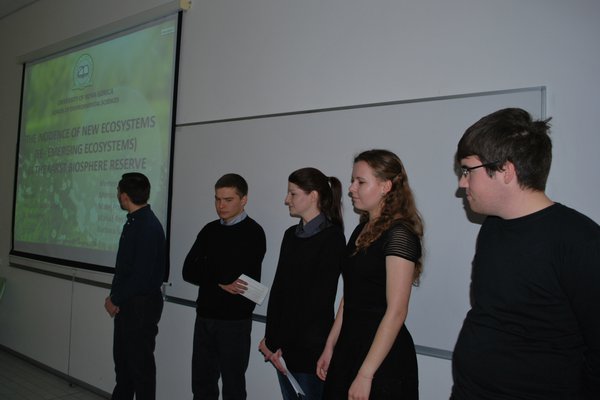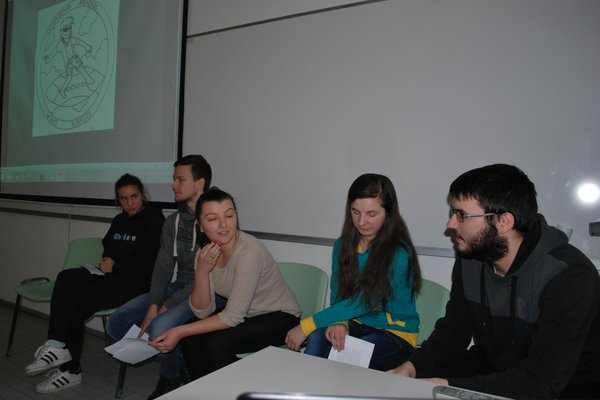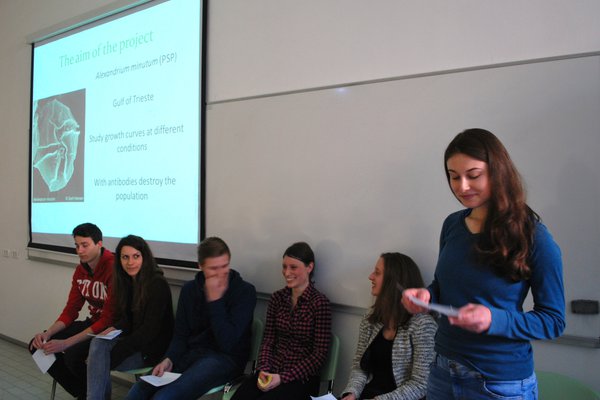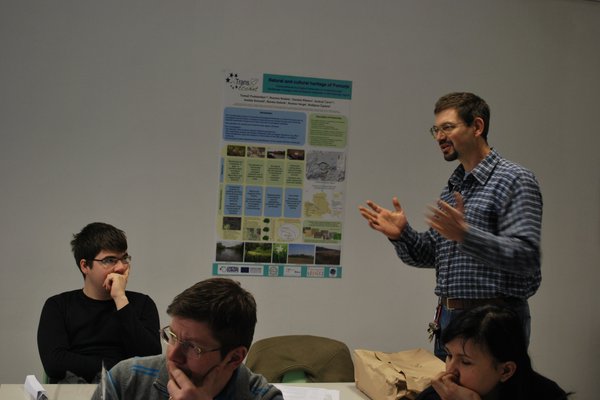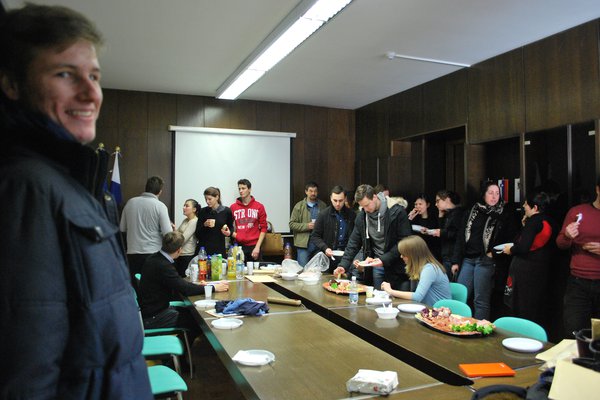Project day - 22 January 2016
Project Day of the School of Environmental Sciences – 22nd January 2016
On 22nd January another student project day took place at the school of Environmental Sciences. The school organises a project day at the end of each semester to give the students of the first-level study programme Environment the opportunity to present their projects as part of the course Group Project. For the first time, also first-year students, who had been involved in project work only for a semester, were invited to present the aims of their procest and the plan of work. The first project group, supervised by Prof. Dr. Ario de Marco, studies the toxins in microalgae, while the second group, under the mentorship of Assist. Prof. Dr. Mitja Martelanc, will try to assess of the level of air pollution in the Primorska region and find possible causes for this environmental problem. Both project groups were good in presenting and obtained valuable experience of performing scientific research. The advice of the Evaluating Committee, as well as the suggestions of other students and professional audience present at the event will undoubtedly help first-year students in their further course of project work.
We were also extremely pleased to note the progress of the second- and third-year students. The latter successfully completed their project “Efficient photocatalytic decomposition of organic contaminants” under the mentorship of Dr. Marko Kete. They also made a project poster and produced a final report, which will be available at UNG Library. Moreover, also second-year students, supervised by Prof. Dr. Anton Brancelj and Dr. Tanja Peric, made a significant progress in their project “The incidence of new ecosystems (EE- Emerging Ecosystems) in the Karst Biosphere Reserve” and presented their findings also to the representative of the Škocjan Caves Park Mr. Tomaž Zorman. Successful cooperation between the University of Nova Gorica and the Škocjan Caves Park brings various advantages to the students. Working on a joint project definitely help the students to establish contacts with potential employers, and at this very project day Mr. Zorman offered the students the opportunity to obtain the licence for cave guides as well as the opportunity for summer student jobs at the Škocjan Caves Park. In comparison with the wider student population, the students of the study programme Environment, particularly those working on the above-mentoned project, actually have a much deeper knowledge in the area of environmental protection and, of course, of Karst and the Škocjan Caves Park, and at the same time possess the relevant competences necessary to become cave guides.

